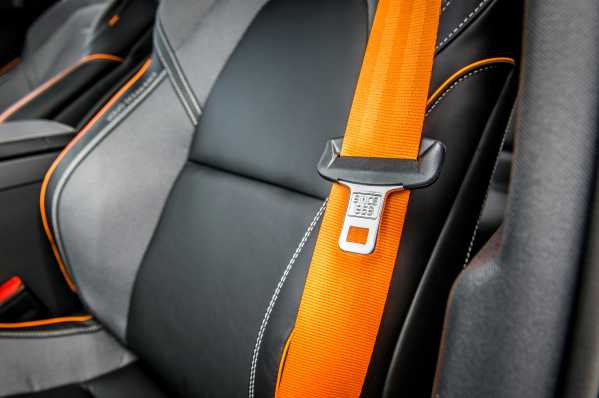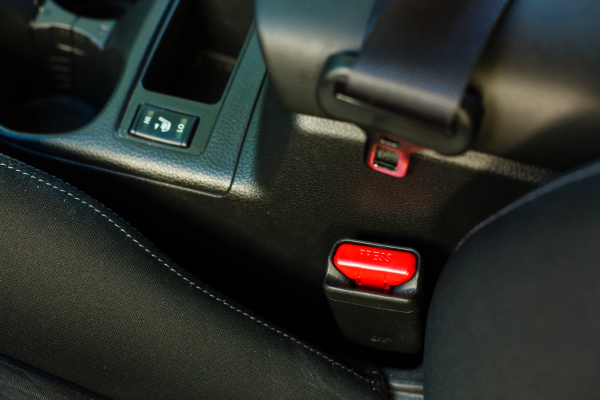Automotive Maintenance & Safety
Clock Spring: The Essential Guide to Your Steering Wheel’s Hidden Hero

Clock springs may not be the first thing that comes to mind when thinking about essential vehicle components. Still, they play an incredibly vital role in ensuring the modern car's functionality and safety. Dive in as we explore the wonders of the clock spring and its integral role in your vehicle.
What is a Clock Spring?
The clock spring, sometimes referred to as a spiral cable, is a special rotary electrical connector which allows a vehicle's steering wheel to turn while maintaining a constant electrical connection. This connection is crucial for functions like the airbag, horn, and audio controls.
Why is the Clock Spring Important?
Airbag Deployment: One of the primary functions of the clock spring is to ensure the airbag deploys correctly during a collision. A malfunctioning clock spring could potentially prevent this critical safety feature from operating as intended. Steering Wheel
Controls: Modern vehicles come with a slew of controls on the steering wheel, from volume adjustments to phone connectivity. The clock spring ensures these controls work seamlessly while you're turning the wheel.
Horn Operation: A simple yet essential feature of every car – the horn – relies on the clock spring for its operation.
Common Signs of a Failing Clock Spring:
Airbag Warning Light: This light could indicate a potential clock spring issue, among other problems. Inoperable Steering Wheel Controls: If buttons on your steering wheel cease to function, the clock spring might be the culprit. Horn Malfunction: If your horn doesn't sound or sounds intermittently, a faulty clock spring may be at play.
Maintenance and Replacement:
Like all vehicle components, the clock spring can wear out over time, especially in cars that see a lot of steering action. Regular service checks can identify potential issues early on, but if you notice any of the signs mentioned above, consult with a professional mechanic immediately.
While it may not have the name recognition of components like the engine or brakes, the clock spring is an unsung hero in your vehicle. Understanding its role and ensuring its proper functionality can lead to a safer, smoother driving experience.
Vehicle Maintenance
Repairing Your Car's Seat Belt: A Step-by-Step Guide
Vehicle Safety
Demystifying Airbag Modules: Your Questions Answered
Vehicle Safety
Fixing a Stuck Seat Belt: Your DIY Guide
Clock springs may not be the first thing that comes to mind when thinking about essential vehicle components. Still, they play an incredibly vital role in ensuring the modern car's functionality and safety. Dive in as we explore the wonders of the clock spring and its integral role in your vehicle.
What is a Clock Spring?
The clock spring, sometimes referred to as a spiral cable, is a special rotary electrical connector which allows a vehicle's steering wheel to turn while maintaining a constant electrical connection. This connection is crucial for functions like the airbag, horn, and audio controls.
Why is the Clock Spring Important?
Airbag Deployment: One of the primary functions of the clock spring is to ensure the airbag deploys correctly during a collision. A malfunctioning clock spring could potentially prevent this critical safety feature from operating as intended. Steering Wheel
Controls: Modern vehicles come with a slew of controls on the steering wheel, from volume adjustments to phone connectivity. The clock spring ensures these controls work seamlessly while you're turning the wheel.
Horn Operation: A simple yet essential feature of every car – the horn – relies on the clock spring for its operation.
Common Signs of a Failing Clock Spring:
Airbag Warning Light: This light could indicate a potential clock spring issue, among other problems. Inoperable Steering Wheel Controls: If buttons on your steering wheel cease to function, the clock spring might be the culprit. Horn Malfunction: If your horn doesn't sound or sounds intermittently, a faulty clock spring may be at play.
Maintenance and Replacement:
Like all vehicle components, the clock spring can wear out over time, especially in cars that see a lot of steering action. Regular service checks can identify potential issues early on, but if you notice any of the signs mentioned above, consult with a professional mechanic immediately.
While it may not have the name recognition of components like the engine or brakes, the clock spring is an unsung hero in your vehicle. Understanding its role and ensuring its proper functionality can lead to a safer, smoother driving experience.
Vehicle Maintenance
Repairing Your Car's Seat Belt: A Step-by-Step Guide
Vehicle Safety
Demystifying Airbag Modules: Your Questions Answered
Vehicle Safety
Fixing a Stuck Seat Belt: Your DIY Guide


